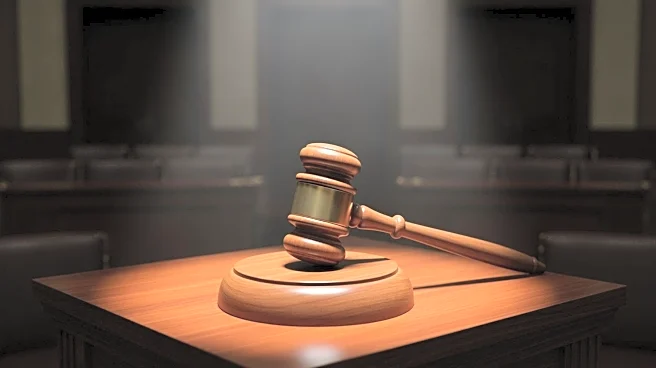What's Happening?
Speaker Mike Johnson, representing Louisiana, has taken a resolute stance in the ongoing government shutdown, refusing to bring the House back into session until the Senate passes the House's funding proposal.
The shutdown has persisted for three weeks, with Johnson remaining steadfast in his decision to halt all House business. He has criticized Senate Democrats for not accepting a proposal to extend Affordable Care Act subsidies, which they demand as part of any deal to reopen the government. Johnson's approach has garnered support from conservative lawmakers but also poses risks, including potential impatience from Republican members and public perception blaming Republicans for the shutdown.
Why It's Important?
The government shutdown has significant implications for U.S. politics and public policy. Johnson's firm stance reflects his leadership style and the influence he has gained nearly two years into his speakership. His approach could impact the Republican party's public image, as a Washington Post poll indicates that a majority of respondents blame Republicans for the shutdown. The situation also affects various stakeholders, including military personnel and low-income mothers, who face missed payments and funding challenges. Johnson's strategy aims to position the House as a leading force in policy discussions, challenging the traditional dynamic where the Senate leads.
What's Next?
If the shutdown continues, Johnson may face increased pressure to bring the House back to pass legislation that funds the government for a longer period. The current House funding measure only extends until November 21, and as this date approaches, the urgency to resolve the shutdown may intensify. Johnson has rejected the idea of passing another short-term extension, emphasizing that the Senate must act. The prolonged standoff could lead to further negotiations or a bipartisan deal in the Senate, potentially altering the current dynamics.
Beyond the Headlines
Johnson's leadership style and tactics during the shutdown highlight a shift in congressional dynamics, with the House taking a more assertive role in policy discussions. His ability to earn President Trump's backing and trust has contributed to this change, challenging conventional operations on Capitol Hill. The situation underscores the complexities of legislative negotiations and the trade-offs involved in resolving thorny issues.










